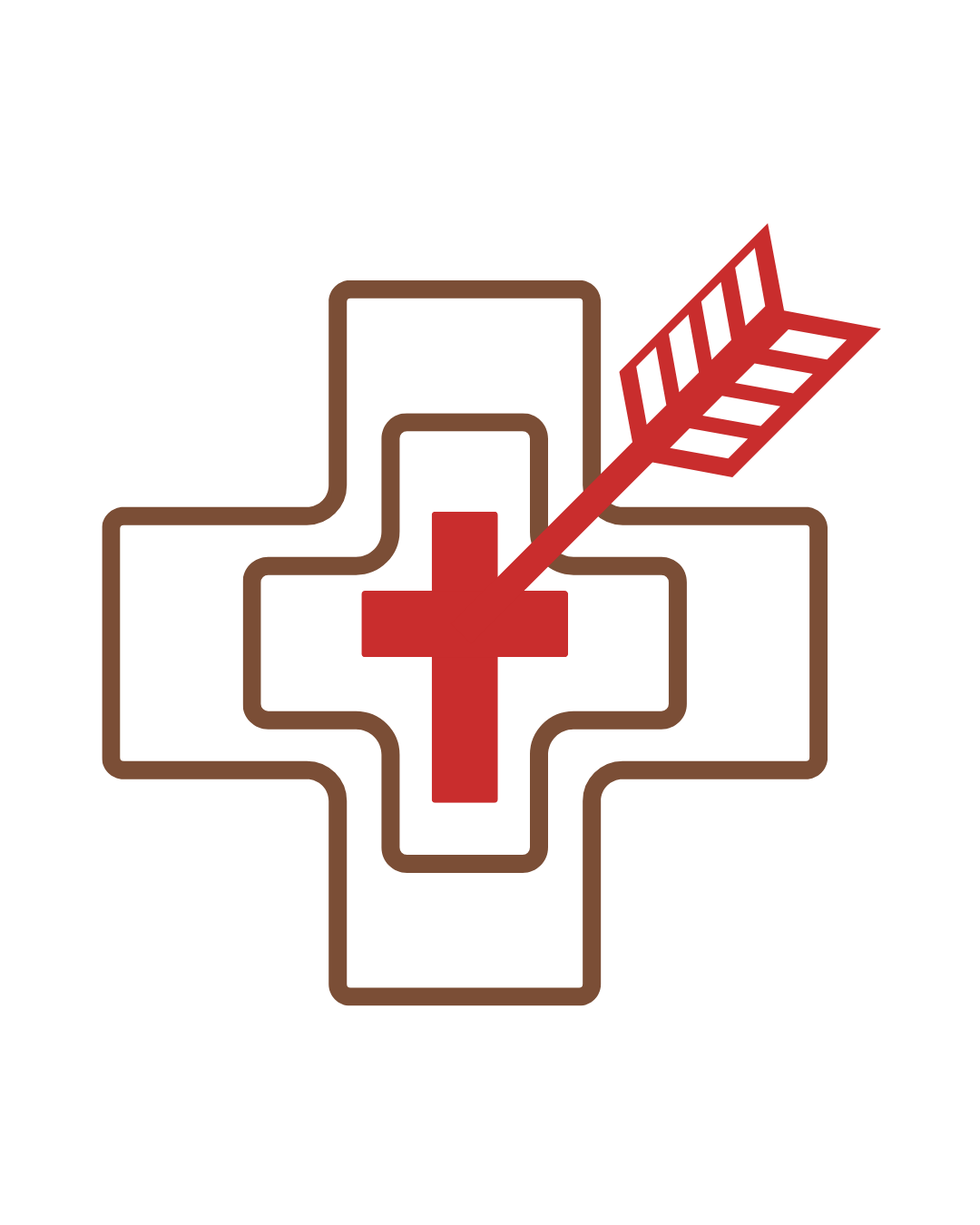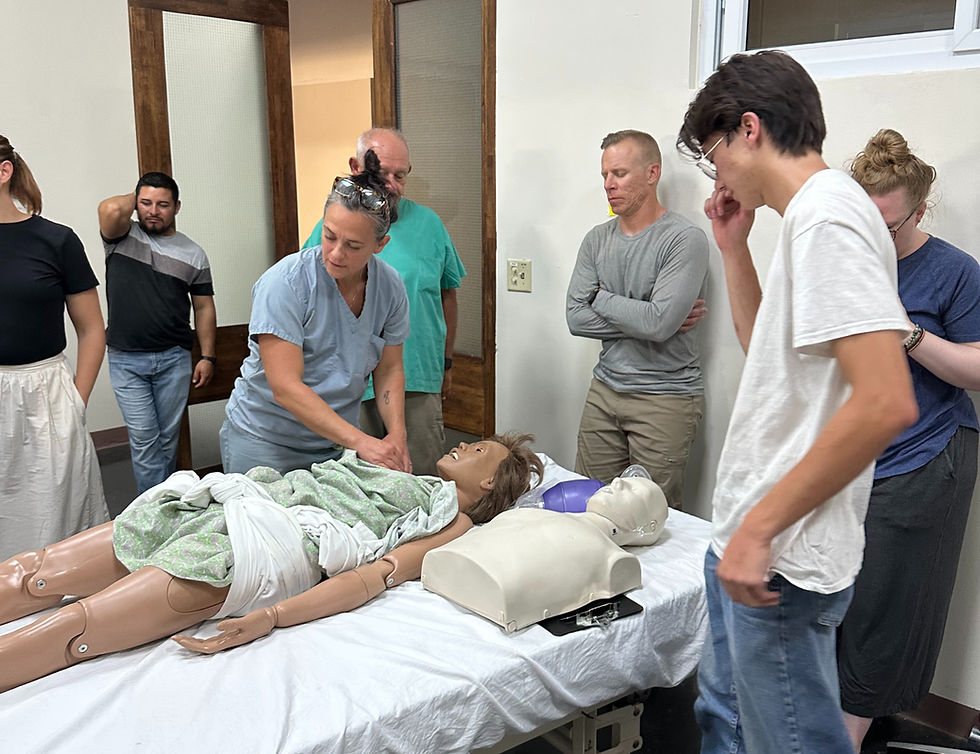Why the PA Role is Uniquely Suited for Global Health
- Red Shot Medical

- Oct 18
- 4 min read
In this article, we’ll discuss why physician associates are well-suited for global health work, the current barriers we face in this area, and the impactful work we are already doing despite these barriers.

The Challenge Facing Global Health
By 2030, the World Health Organization projects a shortage of 11 million healthcare workers, particularly in low and middle-income countries. This shortfall will affect all areas of care including primary care, disaster response, and humanitarian work. Filling these gaps requires flexible and highly skilled clinicians who can adapt in various contexts. Few professionals fit this description better than a physician assistant/associate, or PA.
The PA Advantage: Trained for Every Environment
Like physicians, PAs are educated through a graduate-level medical model. With more than 2,000 hours of supervised clinical rotations across specialties such as Family Medicine, surgical specialties, Emergency Medicine, Pediatrics, and Women’s health, PAs graduate as expert generalists (AAPA). This is a critical strength when it comes to global health.
PAs are trained to be adaptable across complex systems and populations. Our unique training means we are prepared to manage everything from infectious disease, chronic illness, to acute trauma. In remote and resource-limited regions where a single clinician or small team must meet a variety of needs, the PA’s wide range in scope of practice is a superpower.
After graduation and certification, PAs also have the ability to gain specialization through on-the-job instruction, annual continuing medical education requirements, or a post-graduate degree like the Doctor of Medical Science. Compared to other healthcare roles, PAs can easily transition into different specialties, and 1 in 5 PAs have done so at least once in their career (AAPA).
The PA profession was built on collaboration (AAPA). From the first day of our master’s program, PAs learn to operate as integral members of a healthcare team who will work closely with physicians, nurses, pharmacists, and public health officials. In humanitarian missions or crisis environments, this easily translates into effective teamwork with local and international healthcare providers and community workers (Kroto, B. (2024) Physician Associate/Assistant Title Demand From The World
Health Organization: The Full Circle Feldsher).
Critically, patients also trust PAs, with 89% saying that PAs improve health outcomes and 91% agreeing that PAs are part of the solution to the healthcare worker shortage (AAPA).
Current Barriers to PAs in Global Health Participation
Despite our role being well-suited to global health needs, as PAs we face several systemic barriers that restrict our ability to serve effectively on an international scale.

Fragmented Titles and Identity: The PA role exists in 60+ countries under 30+ titles, which creates confusion about credentials and scope of practice,
Lack of WHO/ILO Recognition: The World Health Organization and International Labour Organization do not list physician assistant/associate as an official occupational category.
Limited Advocacy Infrastructure: Due to the relative youth of the PA role and the fact that most PAs focus on clinical practice, the profession lacks the unified lobbying and advocacy strength of other groups, such as nurses.
Although PAs could fill major gaps in global healthcare we are often excluded. Resolving the issues mentioned above would clear a path for further PA involvement and relieve the burden on other healthcare workers.
The PA title should be formally defined and included in the International Standard Classification of Occupations and recognized by the World Health Organization. This recognition would standardize credentialing, enable accurate workforce tracking, and allow rapid deployment of PAs during humanitarian crises. Developing a standard for the international PA title would also reduce confusion around the role, strengthen academic exchange, and empower ministries of health to integrate PAs into their national systems (Kroto, B. (2024) Physician Associate/Assistant Title Demand From The World Health Organization: The Full Circle Feldsher). The growing success of the U.S. PA Licensure Compact already demonstrates how shared standards improve mobility, and adapting this model internationally could streamline licensing reciprocity and support cross-border practice.
How PAs Are Already Making a Difference

PAs and PA equivalents have not let lags in global policy hold us back. Already, we are showing our value to global health by filling gaps in critical care, training local providers, and strengthening systems through innovation and collaboration.
Many PAs are currently taking the time to cut through the red tape around licensing, titles, and scopes of practice to volunteer on humanitarian projects and disaster response teams around the world. Many nonprofits, NGOs, and ministry based organizations like Floating Doctors, Shirtai KMT Hospital, and Adonai International Ministries give PAs a path to participate in global health work. Innovative, PA-led organizations like Red Shot Medical, Global Health Impact, and the University of Lynchburg Doctor of Medical Science program are also facilitating PA involvement in medical mission work, while groups like the International Academy of Physician Associate Educators work to bridge the gaps at the educational level.
The global healthcare workforce shortage demands practical solutions, and physician associates are already answering the call. PAs bring the kind of adaptable, high-impact care that global health depends on. Despite our proven value, PAs have not been able to meet our full potential because of the current lack of international recognition.
As an organization founded by a PA, Red Shot Medical strives to not only expand access to medical care and empower clinicians, but also to advocate for PAs and our role in global health.
Then I heard the voice of the Lord saying, “Whom shall I send? And who will go for us?” And I said, “Here am I. Send me!” - Isaiah 6:8
In the next article, we’ll discuss what it means to be a medical missionary.


Comments